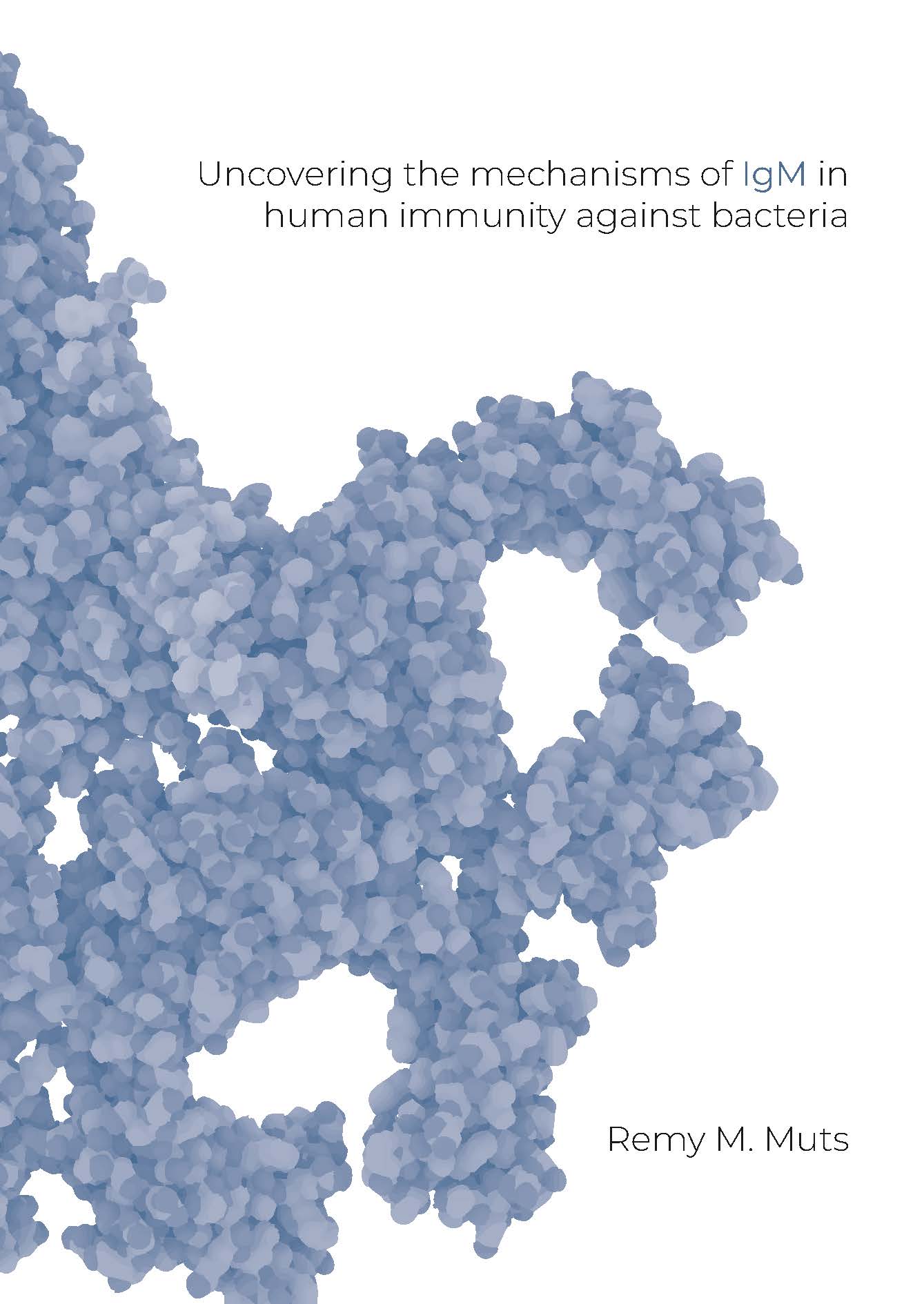Antibacterial IgM is better at activating the complement system than IgG and the mechanism by which this occurs is different between these two types of antibodies. In addition, IgM can provide broader protection against different bacteria than IgG via a newly identified cross-reactivity mechanism. These findings provide fundamental insights into the mechanisms of IgM in human immunity against bacteria and may accelerate the development of antibody therapies against problematic infections, concluded Remy Muts (UMC Utrecht) in his PhD thesis that he defended on April 17 at Utrecht University.
The human immune system is highly complex and well-equipped to combat most bacterial pathogens. However, in some instances bacteria can cause life-threatening infections and the increase of antimicrobial resistance (AMR) highlights a clear demand for the development of alternative treatment strategies. Activating the body’s own immune system with antibodies to clear infections has been deemed a promising strategy. To effectively employ this, a more in-depth understanding about the mechanisms by which antibodies effectively stimulate bacterial killing by the immune system is needed. One way to eradicate bacteria by antibodies, is to activate the complement system as this leads to potent recognition by immune phagocytic cells, as well as direct killing of Gram-negative bacteria. Of the five human antibody isotypes (IgG, IgM, IgA, IgE and IgD), only IgG and IgM can activate complement. Although it has been established that IgM is more potent in anti-bacterial immunity than IgG, the mechanisms by which human IgM can achieve this remains elusive. In his PhD project, Remy Muts (Department of Medical Microbiology, UMC Utrecht) aimed to understand the mechanistic differences between IgM and IgG in anti-bacterial responses.
Remy Muts
In their studies, Remy Muts and colleagues have identified novel antibodies against bacteria and developed new ways to compare IgG and IgM in a detailed manner on a relevant bacterial surface. Using monoclonal human IgM targeting several bacteria, they showed that, in an artificial system to study antibody-dependent complement activation, pentameric IgM was approximately 70-fold more efficient than IgG in driving complement-mediated lysis of genetically engineered Escherichia coli. Superior bacterial killing capacity of IgM over IgG was also observed for Klebsiella pneumoniae.
In addition, although the sequential pathway in which IgG and IgM activate complement is similar, the molecular activation mechanism differs. Finally, it was found that IgM-based antibodies could provide broader protection than IgG against Staphylococcus aureus (as well as other Gram-positive and Gram-negative bacteria) via superior cross-reactivity.
Research collaboration
This research project was funded by the Netherlands Centre for One Health (NCOH) via its Disease Intervention Strategies (DIS) research program. DIS is an overarching theme for more than 10 PhD tracks in NCOH projects to create new interdisciplinary, inter-thematic, and inter-institutional research collaborations. NCOH aims for an integrated One Health approach to tackle the global risk of infectious diseases. NCOH commits to create durable solutions for this major challenge by bundling world-leading academic top research in the Netherlands in the area of One Health.
“Collectively, the knowledge gained in my PhD track provides fundamental insights into the mechanisms of IgM in human immunity against bacteria and may accelerate the development of antibody therapies against problematic infections.”
PhD defense
Remy Martin Muts, MSc (1997, Amsterdam) defended his PhD thesis on April 17, 2025 at Utrecht University. The title of his thesis was “Uncovering the mechanisms of IgM in human immunity against bacteria”. Supervisor was prof. Suzan Rooijakkers, PhD and co-supervisor was Dani Heesterbeek, PhD (both Department of Medical Microbiology, UMC Utrecht). In May 2025, Remy Muts will start as a scientist at the research group of prof. Nina van Sorge, PhD at Amsterdam UMC.


